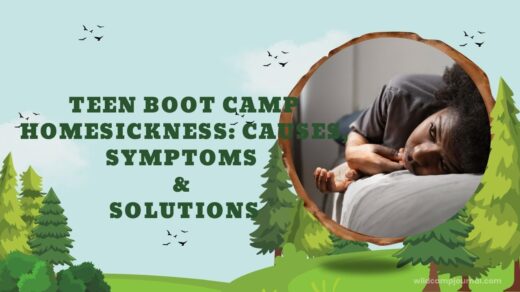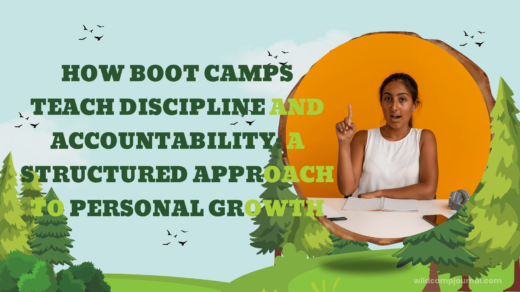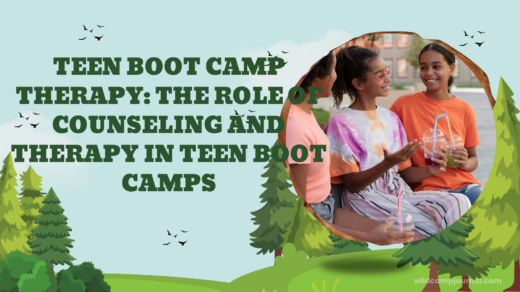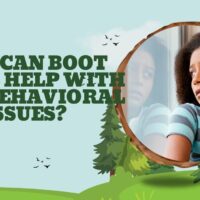Parenting a teenager is a journey full of challenges, triumphs, and sometimes, roadblocks.
When it seems that control is slipping away, it can leave parents feeling helpless and unsure of the next step.
Boot camp program, though sometimes controversial, are structured interventions designed to help troubled teens reset their behaviors and get back on track.
Let’s explore the key signs that might indicate your teen could benefit from such a program and how these camps can help.
Table of Contents
Summarizing Key Takeaways
- Recognize the Signs: Severe mood swings, defiance, academic struggles, or substance abuse may signal a need for intervention.
- Explore the Options: Boot camps can provide structure, but counseling and community programs may also address the root of the issues.
- Research Carefully: Not all boot camps are created equal. Ensure the program prioritizes rehabilitation over punishment and employs qualified staff.
- Communicate Openly: Involve your teen in the decision-making process to ensure they feel supported, not punished.
Recognizing Behavioral Issues
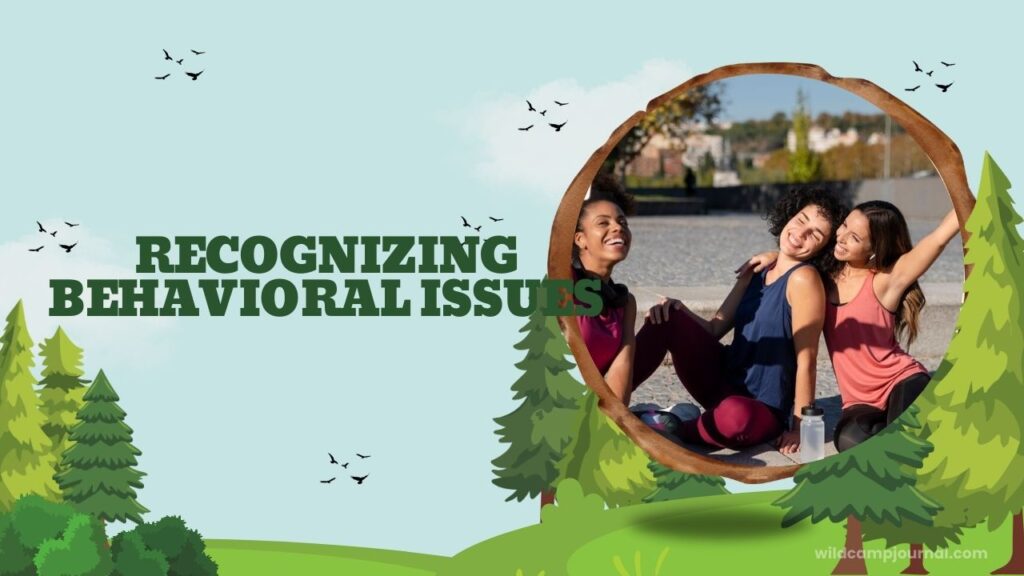
Teenagers naturally go through emotional and behavioral changes as they navigate adolescence.
However, when these changes become extreme or disruptive, they may point to deeper issues that require attention.
Recognizing these behavioral signs early is crucial for providing the right support and intervention.
Sudden and Severe Mood Swings
Mood swings are common during the teenage years due to hormonal fluctuations and the stress of growing up.
But when these shifts in mood become sudden, intense, and disproportionate to the situation, they may signal underlying emotional or psychological struggles.
- Excessive Irritability or Anger: If your teen frequently lashes out over minor inconveniences or becomes easily angered without clear triggers, it could point to pent-up frustration or emotional distress.
- Emotional Outbursts: Regular episodes of crying, yelling, or other extreme emotional displays can indicate deeper struggles, such as anxiety, depression, or unresolved trauma.
- Frequent Withdrawals: A teen who oscillates between explosive outbursts and extended periods of isolation may be grappling with emotions they cannot process or express healthily.
Patterns of Aggression or Violence
When mood swings escalate into aggressive or violent behavior, it’s a clear sign that intervention may be necessary.
This type of behavior can manifest in multiple ways:
- Physical Aggression: Regularly hitting, shoving, or destroying objects can point to unregulated anger or frustration. Such behavior might also create an unsafe environment at home or school.
- Verbal Aggression: Constant arguments, threats, or name-calling are indicative of a lack of emotional control and a tendency to lash out inappropriately.
- Risk-Taking Behavior: Aggression might also show up in indirect ways, such as engaging in dangerous activities or putting themselves and others at risk.
If these behaviors are persistent, professional intervention, such as counseling or a structured program, can help your teen learn healthier coping mechanisms.
Persistent Defiance and Rebellion

Rebellion is often a natural part of a teenager’s journey toward independence.
However, when defiance becomes a constant and destructive pattern, it may indicate deeper behavioral issues.
- Consistent Rule-Breaking: Teens who continuously disregard curfews, skip school, or ignore house rules are showing more than a desire for independence—they might be testing boundaries due to internal turmoil or external influences.
- Oppositional Behavior: Persistent arguments, refusal to follow instructions, and a hostile attitude toward authority figures suggest a deeper disconnect or dissatisfaction.
- Lack of Accountability: A defiant teen may consistently shift blame or refuse to accept responsibility for their actions, further straining relationships at home and school.
When Boundaries Are Consistently Broken
Healthy boundaries are essential for teens to learn self-discipline and respect for others.
If a teen frequently pushes these boundaries, it may be a cry for help or attention.
- Ignoring Consequences: Teens who repeat negative behaviors despite facing consequences may lack respect for authority or struggle with impulse control.
- Involvement in Risky Activities: Crossing boundaries might also mean engaging in risky behavior, such as experimenting with substances, associating with dangerous peers, or sneaking out at night.
- Testing Limits: While some boundary-pushing is normal, consistent and extreme actions can signal a deeper problem that requires structured intervention, such as a boot camp program designed to reset behavioral patterns.
Recognizing these behavioral issues early is the first step toward providing your teen with the support they need.
While these signs may seem overwhelming, they also present an opportunity for intervention and positive change.
Boot camp programs, with their structured and disciplined environments, are one option for helping teens address and overcome these challenges effectively.
Academic Decline
A significant drop in academic performance is often one of the first warning signs that a teenager is struggling with deeper issues.
Education is a cornerstone of a teen’s development, and a noticeable shift in how they engage with school can be an indicator that something is amiss.
Chronic Underperformance
Teens who consistently underperform in school may be dealing with underlying challenges such as learning difficulties, emotional distress, or a lack of motivation.
Chronic underperformance goes beyond the occasional poor grade or missed assignment—it’s a persistent pattern where a teen fails to meet academic expectations over a prolonged period.
Possible causes include:
- Low Self-Esteem: They may feel incapable of achieving success, which discourages effort.
- Distractions at Home: Family conflict, financial stress, or instability can pull focus away from school.
- Undiagnosed Learning Disabilities: Struggles with reading, writing, or math could hinder their progress if left unaddressed.
Addressing chronic underperformance early is essential. Without intervention, teens may fall further behind, impacting their future opportunities.
Loss of Interest in Studies
A teen losing interest in their studies can be even more alarming than underperformance.
When a teen no longer values or enjoys learning, it could point to:
- Burnout: Overloaded schedules or high expectations might leave them feeling exhausted.
- Peer Influence: Friends who downplay the importance of education can steer them away from school priorities.
- Mental Health Issues: Conditions like depression and anxiety often result in apathy or lack of focus.
You might notice them skipping homework, avoiding studying, or showing frustration when discussing school.
This disengagement could escalate to skipping classes or even dropping out if left unchecked.
When Academic Decline Warrants a Boot Camp Program
If traditional methods like tutoring, counseling, or increased parental support fail to reignite a teen’s academic drive, a boot camp program might help.
These programs provide a highly structured environment where teens can develop better study habits, rebuild their confidence, and learn the value of discipline.
Additionally, boot camps often include mentoring and life-skills training, helping teens connect their academic efforts to real-world success.
This sense of purpose can be the spark needed to re-engage with their education and future aspirations.
Substance Abuse Signs
Substance abuse is one of the most alarming issues a parent can face with their teenager.
Experimentation with drugs or alcohol can quickly spiral into dependency, significantly impacting their mental, emotional, and physical well-being.
Being alert to the signs of substance abuse is critical for early intervention.
Experimentation Turning Into Habit
Teenagers are naturally curious and often experiment with substances due to peer pressure, stress, or simply a desire to “fit in.”
While occasional experimentation might seem harmless to some, it can quickly develop into a habit if not addressed.
Here are some red flags to watch for:
- Increased Secrecy: Teens engaging in substance use may become overly secretive about their activities, whereabouts, or the friends they hang out with.
- Frequent Use of Excuses: They might frequently justify their behavior with excuses like, “It’s just one drink” or “Everyone else is doing it.”
- Neglecting Responsibilities: Substance use often leads to neglect of schoolwork, chores, or extracurricular commitments. A teen who was once responsible may start to miss deadlines or fail to show up for important events.
- Changes in Personality: Habitual use can result in noticeable personality changes, such as irritability, apathy, or aggression.
If these patterns are becoming consistent, it might indicate that experimentation has crossed into habitual use, warranting immediate attention.
Physical Indicators of Drug or Alcohol Use
Physical changes are often the most visible signs of substance abuse, though they may be overlooked if dismissed as typical teenage behavior.
Pay attention to these key indicators:
- Bloodshot or Glazed Eyes: This is a common sign of alcohol or marijuana use, especially if accompanied by a strong odor.
- Frequent Nosebleeds or Runny Nose: These can indicate the use of drugs like cocaine or other inhalants.
- Sudden Weight Loss or Gain: Substance abuse often disrupts normal eating patterns, leading to noticeable changes in weight.
- Slurred Speech or Unsteady Movements: These are classic signs of intoxication that shouldn’t be ignored, even if they seem isolated incidents.
- Changes in Sleep Patterns: Teens may either become excessively drowsy or suffer from insomnia depending on the substance used.
Additionally, look for behavioral changes that accompany physical symptoms, such as avoiding eye contact, wearing long sleeves to hide track marks, or having unexplained bruises or injuries.
Being proactive when you notice these signs is vital. Substance abuse not only endangers your teen’s health but can also lead to dangerous behaviors and long-term consequences.
Boot camp programs can offer a structured environment to address these challenges, but combining them with counseling and therapy often yields the best results.
Social Withdrawal

Teenagers are naturally drawn to exploring their identity, which can lead to shifts in social behavior.
However, when these changes result in extreme withdrawal or concerning associations, it might be a sign that something more serious is happening.
Understanding and addressing these behaviors is crucial to ensuring your teen’s well-being.
Isolation From Family and Friends
A healthy social life is an essential part of adolescent development.
When a teen begins to distance themselves from family members or long-time friends, it’s often a red flag.
Here’s what to watch for:
- Avoiding Family Activities: If your teen refuses to join family dinners, outings, or celebrations, it might indicate feelings of disconnection or underlying emotional struggles.
- Spending Excessive Time Alone: While everyone needs personal space, constant isolation in their room or avoidance of shared spaces can suggest anxiety, depression, or feelings of inadequacy.
- Loss of Interest in Close Relationships: A sudden disinterest in maintaining long-standing friendships can point to struggles with self-esteem, bullying, or a desire to avoid judgment.
Isolation often stems from feelings of shame, confusion, or the inability to process emotions healthily.
Teens might also withdraw if they feel misunderstood or unsupported.
Opening up a dialogue about their feelings can be a crucial first step toward addressing the root cause of their withdrawal.
Hanging Out With the Wrong Crowd
The people your teen associates with can have a profound influence on their behavior and choices.
Associating with a negative peer group can often exacerbate risky behaviors or further alienate them from positive influences.
- Changes in Peer Groups: If your teen abruptly replaces their usual circle of friends with individuals who exhibit concerning behaviors, it’s worth paying attention.
- Adopting Harmful Habits: Teens are more likely to engage in risky behaviors, such as substance abuse or truancy, if these activities are normalized within their social group.
- Deceptive Behavior: Lying about their whereabouts, the people they’re spending time with, or their activities may indicate they’re trying to hide problematic influences.
Sometimes, teens gravitate toward negative influences because they feel a sense of acceptance or belonging.
Other times, they may be pressured or manipulated.
It’s essential to maintain open communication without judgment to understand why your teen might be drawn to a particular group.
How to Address Social Withdrawal

Social withdrawal and troubling associations require proactive steps:
- Communicate Without Criticism: Approach your teen with empathy. Avoid accusatory tones that may make them defensive. Instead, ask open-ended questions like, “I’ve noticed you’ve been spending a lot of time alone. Is everything okay?”
- Encourage Healthy Connections: Help them reconnect with positive influences, such as trusted family members, mentors, or supportive peers.
- Seek Professional Guidance: If withdrawal or peer pressure seems overwhelming, therapy or counseling can help uncover underlying issues and teach coping strategies.
Recognizing these signs and taking timely action can help redirect your teen onto a healthier, more fulfilling path.
Trouble With Authority
When a teenager consistently challenges authority figures, it may indicate deeper behavioral or emotional issues that need attention.
While it’s normal for teens to test boundaries as part of growing up, persistent trouble with authority figures can lead to significant consequences, both academically and socially.
Conflicts With Teachers and School Staff
Teenagers spending a significant portion of their time in school often show early signs of authority issues through interactions with teachers and school staff.
These conflicts can include:
- Refusal to Follow Rules: A teen might disregard classroom rules, disrupt lessons, or openly challenge teachers. This behavior often escalates over time if left unchecked.
- Frequent Detentions or Suspensions: A pattern of disciplinary actions, such as detentions or suspensions, can signal a lack of respect for authority and difficulty adapting to structured environments.
- Verbal or Physical Altercations: In more extreme cases, teens may resort to arguments or even physical confrontations with staff, indicating unresolved anger or frustration.
Conflicts in school don’t just affect the teen—they disrupt the learning environment for others and may lead to isolation from peers or eventual expulsion.
Encounters With Law Enforcement
A troubling sign of escalating authority issues is when a teen begins to have run-ins with law enforcement.
These situations may arise from behaviors like:
- Engaging in Vandalism or Theft: Teens struggling with impulse control or seeking attention might resort to destructive actions, such as property damage or stealing.
- Substance-Related Offenses: Involvement in underage drinking, drug use, or possession can lead to arrests or legal warnings. These offenses are often compounded by peer pressure or underlying emotional struggles.
- Resisting Arrest or Challenging Officers: A teen with authority issues might refuse to comply during encounters with police, escalating a minor situation into a more serious legal problem.
While these behaviors might seem alarming, they are often cries for help.
Teens acting out in these ways may be struggling with feelings of inadequacy, unresolved trauma, or a need for control in their lives.
Addressing Trouble With Authority
Identifying and addressing authority issues early is critical.
Boot camp programs offer a structured environment that helps teens rebuild their respect for rules and authority figures.
These programs emphasize accountability and often include mentorship, which can positively influence a teen’s attitude toward authority.
If your teen’s struggles with authority are starting to spiral, it might be time to explore options that can provide the guidance and intervention they need to thrive.
Mental Health Concerns
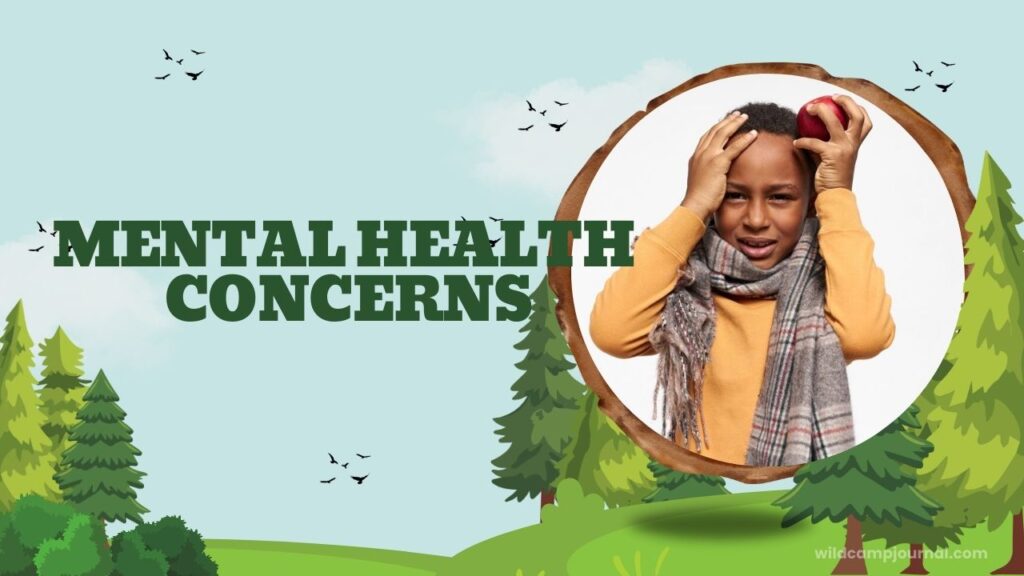
Teen years are often turbulent, marked by emotional highs and lows as young individuals navigate their way through life.
However, when these emotional fluctuations persist or worsen, they may indicate deeper mental health concerns.
Addressing these issues early is crucial to preventing long-term consequences and ensuring your teen gets the support they need.
Signs of Depression and Anxiety
Depression and anxiety are among the most common mental health challenges teens face today.
Here are some red flags to watch for:
- Persistent Sadness: If your teen seems perpetually down or disengaged, this could be a sign of depression. Pay attention to extended periods of low energy or lack of enthusiasm for activities they once enjoyed.
- Irritability and Anger: While occasional moodiness is normal for teens, constant irritability or anger outbursts might signal underlying anxiety or depression.
- Sleep Disturbances: Look out for changes in sleep patterns, such as insomnia, excessive sleeping, or trouble waking up in the morning. Sleep is closely tied to emotional health.
- Physical Symptoms: Complaints of headaches, stomachaches, or other unexplained physical ailments can often accompany mental health struggles.
- Avoidance Behaviors: Teens with anxiety may avoid situations or activities that trigger their stress, such as social gatherings or school.
- Expressing Hopelessness: Statements like “Nothing matters” or “I don’t see the point” can be alarming indicators of depression.
If these signs persist, a mental health professional should be consulted. For some teens, structured programs like boot camps can serve as part of a broader support system to address these issues.
Unaddressed Trauma or Emotional Pain
Trauma can significantly impact a teen’s mental health, especially if it goes unaddressed. Teens may face trauma from various sources, including:
- Family Conflict: Divorce, domestic violence, or constant arguments at home can leave lasting emotional scars.
- Bullying: Both in-person and cyberbullying can erode a teen’s self-esteem, leading to anxiety, depression, or social withdrawal.
- Loss of a Loved One: Grieving the death of a close family member, friend, or even a pet can profoundly affect a teen’s emotional state.
- Abuse: Physical, emotional, or sexual abuse often results in unresolved trauma that manifests in behavioral and mental health issues.
- Chronic Stress: Prolonged exposure to high-pressure environments—be it academic, social, or familial—can lead to burnout and emotional instability.
Teens dealing with trauma often exhibit signs such as:
- Emotional Numbness: A tendency to shut down or detach emotionally from others.
- Flashbacks or Nightmares: Recurrent thoughts or dreams related to the traumatic event.
- Hypervigilance: Constantly being on edge, jumpy, or overly alert to surroundings.
- Difficulty Trusting Others: Trauma can lead to mistrust or trouble forming close relationships.
Many modern boot camp programs incorporate therapeutic elements, such as counseling, to help teens process their pain in a supportive environment.
Why Choose a Boot Camp Program?

Deciding to enroll a teen in a boot camp program is never an easy choice, but it can be the right step for families struggling with a troubled adolescent.
Boot camps are designed to address behavioral issues, instill discipline, and help teens develop the tools they need to navigate life more effectively.
Here’s why these programs can be beneficial:
Structured Environment
One of the primary reasons families opt for a boot camp program is the highly structured environment it offers.
For teens who thrive in chaos or have little to no routine in their lives, this structure can be a game-changer.
- Consistency and Predictability: Boot camps operate on strict schedules, where every hour of the day is planned. This eliminates the unpredictability that often contributes to a teen’s struggles.
- Clear Rules and Expectations: Teens in these programs are given clear guidelines for behavior, with immediate consequences for stepping out of line. This creates an environment where they understand what is expected of them at all times.
- Focus on Routine: Regular wake-up times, meal schedules, and activity plans foster a sense of normalcy and order that many troubled teens lack in their daily lives.
- Limited Distractions: By removing teens from their usual environment—away from screens, peers, and triggers—boot camps help them focus on self-improvement without external disruptions.
Building Discipline and Accountability
Discipline and accountability are the cornerstones of any successful boot camp program.
These elements are not about punishment but about teaching teens the value of taking responsibility for their actions.
- Learning Consequences: In a boot camp, teens quickly learn that their choices have direct outcomes. This helps them internalize the concept of accountability in real-life scenarios.
- Teamwork and Respect: Many boot camp activities are group-oriented, teaching teens the importance of working together and respecting authority figures. These lessons often translate into improved relationships with family and peers.
- Self-Control Development: Activities like physical training and goal-setting exercises require teens to focus, follow instructions, and push their limits. These challenges help develop their ability to control impulses and manage emotions.
- Fostering Independence: By holding teens accountable, boot camps encourage them to take ownership of their actions. This empowerment builds the confidence needed to make better decisions in the future.
Alternatives to Boot Camps

Boot camps are not the only option for addressing behavioral issues in teenagers.
While they provide structure and discipline, some parents may prefer alternative approaches that focus on emotional support, community involvement, and long-term behavioral change.
Below are two popular alternatives to boot camps that can also yield positive results for struggling teens.
Counseling and Therapy
Counseling and therapy offer a personalized approach to tackling the root causes of a teen’s behavior.
Unlike boot camps, these methods focus on understanding emotional and psychological triggers rather than enforcing strict discipline.
- Individual Therapy: This approach allows teens to speak one-on-one with a licensed therapist. It’s particularly effective for addressing issues like depression, anxiety, trauma, or anger. Therapists use techniques like cognitive-behavioral therapy (CBT) to help teens reframe negative thought patterns and adopt healthier coping mechanisms.
- Family Therapy: Often, a teen’s struggles stem from family dynamics. Family therapy brings everyone to the table to identify underlying issues, improve communication, and create a supportive environment. It’s a great option for families seeking to work through conflict together.
- Group Therapy: Sometimes, knowing they’re not alone can help teens open up. Group therapy provides a safe space to connect with peers facing similar challenges, promoting empathy, self-reflection, and mutual support.
Therapy emphasizes healing and growth over punishment. Many parents find this approach beneficial for teens who need a more empathetic intervention.
Community-Based Programs
For families who want solutions rooted in their local community, community-based programs are an excellent alternative.
These initiatives often combine mentorship, education, and recreational activities to guide teens toward positive life choices.
- Mentorship Programs: Pairing teens with positive role models can inspire them to adopt healthier behaviors. Mentors provide guidance, encouragement, and accountability, offering a safe space for teens to discuss their concerns and set goals.
- After-School Activities: Structured extracurricular activities like sports, art classes, or volunteer opportunities keep teens engaged and provide a constructive outlet for their energy. These programs help develop teamwork, responsibility, and self-esteem while keeping teens away from negative influences.
- Youth Outreach Programs: Many communities offer programs designed to support at-risk youth. These programs often include job training, academic support, and life skills workshops, helping teens build a foundation for success while addressing behavioral challenges.
- Faith-Based Initiatives: For families seeking spiritual guidance, faith-based programs can provide moral teachings and community support. These initiatives often blend counseling, mentorship, and volunteer opportunities within a religious framework.
Community-based programs offer a less rigid environment than boot camps while still encouraging personal growth and responsibility.
They also foster connections with local resources and people, helping teens feel supported in their own neighborhoods.
Both counseling and community-based programs are effective, flexible alternatives to boot camps.
They provide valuable tools and support systems that address the underlying issues in a teen’s life while promoting emotional well-being and long-term positive changes.
Whether through therapy or community involvement, these options can pave the way for a brighter future without the need for a boot camp experience.
What to Look for in a Boot Camp Program

Choosing the right boot camp program for your teen is a critical decision.
The effectiveness of the program often depends on the structure, staff, and philosophy behind it.
Here are two key aspects to prioritize when evaluating potential programs.
Qualified Staff and Support System
A program’s success largely depends on the expertise and attitude of its staff.
Here’s why having a well-trained team matters:
- Experience in Adolescent Development: Professionals with backgrounds in psychology, counseling, and education can better understand and address the unique needs of teens. They know how to approach behavioral problems, emotional struggles, and communication barriers effectively.
- Specialized Training: The staff should be trained in conflict resolution, crisis management, and de-escalation techniques. This ensures that challenging situations are handled with care, minimizing the risk of harm while promoting positive outcomes.
- On-Site Medical Support: Physical health is just as important as emotional well-being. Programs with certified medical personnel available can address health concerns promptly, ensuring your teen’s safety throughout the process.
- Supportive Mentorship: Beyond qualifications, the staff should serve as role models. Teens respond well to authority figures who are empathetic, understanding, and invested in their growth. A supportive mentor can significantly impact a teen’s self-esteem and willingness to embrace change.
A Focus on Rehabilitation Over Punishment
Not all boot camps are created equal, and some still rely on outdated, punitive models. Instead, prioritize programs with a rehabilitative approach that emphasizes growth and healing.
- Therapeutic Methods: Programs that incorporate therapy—such as individual counseling, group sessions, or cognitive behavioral therapy (CBT)—help teens address the root causes of their behavior. Therapy ensures that changes are not just superficial but sustainable over time.
- Skill Development: Rehabilitation-focused programs teach teens practical skills, such as communication, stress management, and problem-solving. These tools empower them to make better decisions and handle challenges constructively.
- Focus on Accountability: Rehabilitation programs encourage teens to take responsibility for their actions without resorting to humiliation or fear. This approach fosters maturity and a deeper understanding of consequences.
- Family Involvement: The best programs involve parents and guardians in the rehabilitation process. Regular updates, family counseling, and reintegration planning help ensure that changes made during the program translate into lasting improvements at home.
- Positive Reinforcement: Instead of focusing solely on punishment, rehabilitation programs reward progress and good behavior. This instills a sense of accomplishment and motivates teens to continue improving.
Preparing Your Teen for the Program

Introducing your teen to a boot camp program is a significant decision, and the process of preparation plays a crucial role in ensuring its success.
Many teens may initially resist or fear the idea of a structured environment, so approaching the subject thoughtfully and sensitively is key.
Open Communication
Transparent and empathetic communication is the foundation of preparing your teen for any major change, especially something as intensive as a boot camp program.
Here are some tips to foster effective dialogue:
- Be Honest About the Purpose: Explain why you believe a boot camp program is necessary. Focus on the positive outcomes you hope for, such as improved behavior, better coping skills, or renewed motivation.
- Acknowledge Their Feelings: Your teen may feel angry, embarrassed, or anxious. Let them express their emotions without judgment and validate their concerns. This openness can reduce resistance and build trust.
- Focus on Solutions, Not Blame: Instead of framing the program as a punishment, present it as an opportunity for growth and a chance to overcome challenges. Avoid accusatory language that might alienate your teen.
- Involve Them in the Process: Allow your teen to ask questions about the program. Share details about the daily structure, the staff, and the goals. Involvement can reduce fear of the unknown and help them feel more in control.
Setting Realistic Expectations
Preparing your teen mentally and emotionally also involves setting clear, achievable expectations about the program.
Here’s how you can approach this:
- Describe the Experience: Provide a clear picture of what the program entails, including the routine, rules, and activities. Knowing what to expect can reduce anxiety and prepare them for the discipline and structure.
- Emphasize Effort Over Perfection: Let your teen know that success doesn’t mean being perfect but putting in genuine effort. Remind them that change takes time and perseverance.
- Highlight the Support System: Reassure your teen that they won’t be alone. Explain that the staff and fellow participants will support them throughout the journey. This can make the program feel less intimidating.
- Discuss Short- and Long-Term Goals: Collaborate on setting goals, both for the program duration and beyond. Whether it’s improving communication skills, learning to manage anger, or building self-discipline, having shared goals can increase their buy-in.
- Prepare for Challenges: Be honest about the fact that the program may be tough. Encourage them to see challenges as opportunities for growth rather than obstacles.
By fostering open communication and setting realistic expectations, you can help your teen feel supported and empowered as they embark on this transformative journey.
While the path may not be easy, preparation can make a world of difference in achieving positive outcomes.
Potential Benefits of Boot Camp Program
Boot camp programs for teens are designed to address behavioral challenges through structured environments, discipline, and skill-building.
These programs offer numerous benefits that can have a lasting impact on a teenager’s life.
Below, we explore two of the most significant advantages: improved behavior and long-term positive change.
Improved Behavior
One of the primary goals of boot camps is to correct disruptive or harmful behaviors.
Through a mix of discipline, accountability, and guidance, teens learn to recognize and modify their actions.
Here’s how this transformation takes shape:
- Structured Daily Routines: Boot camps thrive on schedules that keep teens occupied with constructive activities. This structure reduces idle time, which is often a breeding ground for poor decisions.
- Immediate Feedback: Teens receive real-time consequences for their actions, helping them associate behavior with outcomes. This immediate reinforcement can be a wake-up call for those who struggle to respect boundaries.
- Skill Development: Many boot camps integrate training in problem-solving, communication, and anger management, equipping teens with tools to handle conflicts and frustrations more effectively.
- Group Dynamics: Working and living in a group setting fosters teamwork and mutual respect. Teens often learn the value of cooperation and empathy by interacting with peers facing similar challenges.
- Focus on Self-Discipline: By engaging in activities like physical training, chores, and goal-oriented tasks, teens develop self-control and a stronger sense of responsibility.
For example, a teen who once struggled with defiance may leave a boot camp better equipped to handle authority and follow rules, both at home and in school.
Long-Term Positive Change
While immediate behavioral improvements are valuable, the ultimate goal of a boot camp is to foster long-term transformation.
This extends beyond temporary compliance and focuses on building habits and mindsets that benefit teens well into adulthood.
- Improved Emotional Regulation: Over time, teens learn how to process and express their emotions in healthier ways, reducing the likelihood of future outbursts or destructive behavior.
- Greater Accountability: Programs often emphasize personal accountability, teaching teens to take ownership of their actions and their consequences. This is a life skill that serves them in personal relationships, academics, and careers.
- Renewed Sense of Purpose: Many teens leave boot camps with a clearer vision of their goals and the steps needed to achieve them. This clarity can reignite motivation and reduce feelings of aimlessness.
- Repaired Relationships: The skills and insights gained often lead to better communication with family members, resulting in stronger bonds and fewer conflicts at home.
- Reduction in Risky Behaviors: By addressing the root causes of substance abuse, delinquency, or other harmful activities, boot camps help teens make healthier choices long after the program ends.
For instance, teens who participate in these programs often show significant improvements in school performance, peer interactions, and decision-making well after they’ve completed the camp.
By learning to apply discipline and accountability to everyday life, they are better prepared to tackle future challenges.
When considering a boot camp, it’s crucial to focus on programs that emphasize long-term rehabilitation over short-term discipline.
The most effective programs aim to instill positive habits and mindsets that will guide teens not just through adolescence, but for the rest of their lives.
Risks and Criticisms of Boot Camp Program
Boot camps for troubled teens have been both praised and criticized over the years.
While they can provide structure and discipline, they’re not without risks and controversies.
Understanding these concerns is crucial for parents considering this option for their child.
Concerns About Harsh Methods
One of the most significant criticisms of boot camps is the perception—and sometimes reality—of harsh methods used to enforce discipline.
These programs often adopt a military-style approach, which includes rigorous physical activities, strict rules, and sometimes punitive measures.
While some argue this can “toughen up” teens, it may do more harm than good in certain cases.
- Emotional Impact: Teens with underlying mental health issues, such as anxiety or trauma, may feel further alienated or distressed in an environment that prioritizes discipline over empathy. Harsh methods can exacerbate emotional struggles rather than address them.
- Physical Risks: The demanding physical activities and extreme conditions in some boot camps could pose health risks, especially if the staff isn’t properly trained to handle medical emergencies.
- Negative Reinforcement: Punitive strategies can sometimes lead to resentment or defiance rather than the intended positive behavioral changes. Instead of learning discipline through understanding, teens may comply out of fear, which is often a temporary fix.
Importance of Researching Boot Camp Programs
Not all boot camps are created equal, and a lack of research can lead to selecting a program that doesn’t suit your teen’s needs or aligns with your family’s values.
Thorough vetting is essential to avoid negative experiences.
- Accreditation and Staff Qualifications: Ensure the program is accredited and staffed by qualified professionals, including licensed counselors, therapists, and educators. Programs lacking expertise can be counterproductive or even harmful.
- Rehabilitation vs. Punishment: Look for programs focused on rehabilitation rather than solely on discipline. The goal should be to help your teen develop better coping mechanisms and life skills, not just to follow orders.
- Parental Involvement: Programs that encourage parental participation and provide family counseling are more likely to foster lasting change. Teens need to feel supported, not abandoned.
- Reviews and Testimonials: Seek feedback from other parents and teens who have completed the program. Success stories can provide reassurance, but pay close attention to recurring complaints or red flags.
Finding the Right Fit
By thoroughly researching and understanding potential risks, parents can make an informed decision about whether a boot camp program is the right choice.
This involves assessing the teen’s specific needs, the program’s approach, and whether it aligns with your parenting philosophy.
Ultimately, the goal is to provide a supportive, structured environment that helps the teen grow—not one that adds unnecessary stress or emotional scars.
Balancing discipline with compassion is the key to choosing a program that works.
Final Thought
Navigating the challenges of raising a troubled teen can be overwhelming, but understanding the signs and exploring solutions like boot camp programs can provide a much-needed lifeline.
By recognizing persistent behavioral issues, academic decline, substance abuse, or mental health concerns, parents can identify when it’s time to seek professional help.
Boot camps, with their structured environment and emphasis on discipline, accountability, and personal growth, may offer an effective solution for some teens.
However, they are not a one-size-fits-all remedy and should be considered alongside other interventions, such as therapy or community programs.
FAQs
What is the success rate of boot camps for teens?
The success rate varies depending on the program’s quality and the teen’s specific needs. Programs with a focus on therapy and personal growth tend to yield better results.
How do I know if my teen needs professional help?
Look for persistent issues like aggressive behavior, substance abuse, or withdrawal from family and friends. Consulting a counselor or therapist can help assess the situation.
Are boot camps effective for all teenagers?
No, boot camps are not ideal for every teen. They may work best for those needing structure and discipline but may not address underlying mental health issues requiring therapy.
How long do these programs typically last?
Most boot camps range from a few weeks to several months, depending on the program’s goals and the severity of the teen’s issues.
What are some red flags to watch for in choosing a program?
Avoid programs with a history of abuse or overly harsh methods. Look for accreditation, positive reviews, and a focus on emotional well-being alongside discipline.


